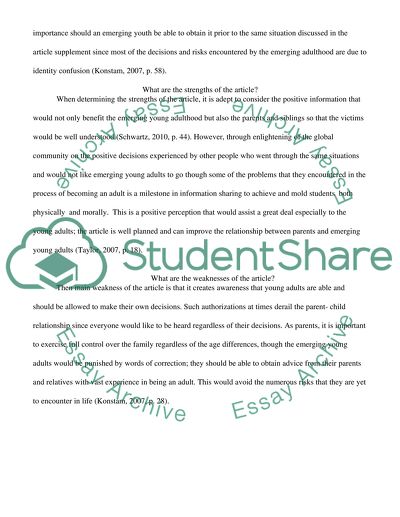Self-Classification & Emerging Adulthood Book Report/Review. Retrieved from https://studentshare.org/psychology/1592655-self-classification-emerging-adulthood
Self-Classification & Emerging Adulthood Book Report/Review. https://studentshare.org/psychology/1592655-self-classification-emerging-adulthood.


